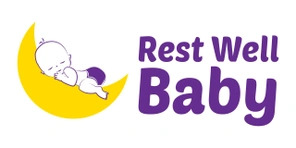Blog

18 Month Sleep Regression
The 18 Month Sleep Regression
Just when you thought you’d cracked the code to your little one's sleep, around 18 months, things can suddenly go sideways. Your once-great sleeper might start resisting naps, fighting bedtime, or waking frequently at night. Welcome to the 18-month sleep regression—a challenging but temporary phase that many families experience.
As a pediatric sleep coach, I want to reassure you: you're not alone, and it’s not your fault. This regression is a normal developmental stage, driven by some incredible leaps your toddler is making. Understanding why it happens is the first step to navigating it successfully.
What's Happening Around 18 Months?
This isn't a random blip; it's a perfect storm of developmental milestones:
Explosive Language Development: Your toddler is soaking up words like a sponge! Their brains are buzzing with new vocabulary and the desire to communicate, making it hard to switch off.
Increased Independence & Assertiveness: "No!" becomes a favorite word. Toddlers are discovering their willpower and pushing boundaries. They understand that sleep means separation from you, and they're testing if they can delay it.
Separation Anxiety Peaks: Around this age, separation anxiety can heighten, making goodbyes at bedtime or naptime particularly tough.
Major Motor Skill Refinements: Walking, running, climbing—their physical capabilities are expanding rapidly. This can lead to overtiredness if they're not getting enough rest, and often, they're too excited to settle down.
Transition to One Nap: Many toddlers are also transitioning from two naps to one around this time, which can temporarily disrupt their sleep rhythm as their body adjusts.
Signs You're in the Thick of It
You might notice some (or all!) of these familiar signs:
Nap refusal: Suddenly fighting or completely skipping naps.
Bedtime battles: Prolonged stalling, crying, or repeated calls for you after being put down.
Frequent night wakings: Waking up more often, crying, or demanding your presence.
Early morning wake-ups: Starting the day before 6 AM.
Increased clinginess: Especially around sleep times.
How to Navigate the 18-Month Sleep Regression with Grace
While frustrating, remember that consistency is your superpower during this time.
Stick to Your Routine (R-O-U-T-I-N-E!): If you have a solid, predictable bedtime routine, lean on it heavily. It provides comfort and signals to your child that sleep is coming, even when their brain is buzzing. If your child already has independent sleep skills, then you want to try to avoid introducing new habits like rocking to sleep or letting them sleep in your bed, as these can become difficult to undo later.
Offer Choices (Within Limits): Give your toddler a sense of control. "Do you want to read the book about trains or the book about elephants?" or "Do you want the lion pajamas or the bear pajamas?" This validates their growing independence.
Embrace Verbal Communication: Acknowledge their feelings ("I know you're sad to say goodnight, but it's time for sleep") but hold the boundary firmly.
Reinforce Boundaries: Toddlers are master negotiators, using stalling requests ("one more hug," "another sip of water," or a last trip to the potty) to test boundaries and extend their time with you. This is them exploring their new sense of control, not an act of malice. The boundary must be set once the established routine is complete and you've begun your usual settling process (whether that involves rocking, sitting nearby or leaving the room). If they stall, calmly give a quick, final, loving phrase ("I love you, time for sleep"), and leave, or return to your post. Your interaction needs to be boring and brief to avoid unintentionally reinforcing the demands, thus preserving the boundary that the time for extras is over.
Ensure Adequate Awake Time: If your child is transitioning to one nap, ensure their awake windows are appropriate. An overtired (or under tired) toddler is a guaranteed sleep fighter.
The 18-month sleep regression typically lasts a few weeks. By staying consistent, understanding their developmental leaps, and offering both boundaries and love, you can and will get through this. You’ve got this, and better sleep is just around the corner!
Want to learn more? Book your 30-minute Sweet Dreams Starter Call today and discover how I can help your family enjoy the gift of sleep.
Yours in sleep,
Tracie / Rest Well Baby
www.restwellbaby.com
Tracie Kesatie is a Certified Gentle Sleep Coach dedicated to helping families with little ones 0-10 years of age achieve a restful night's sleep.
Disclaimer: This article provides general information and is not intended as medical advice. Always consult with your pediatrician for any concerns about your child's health.
Blog





